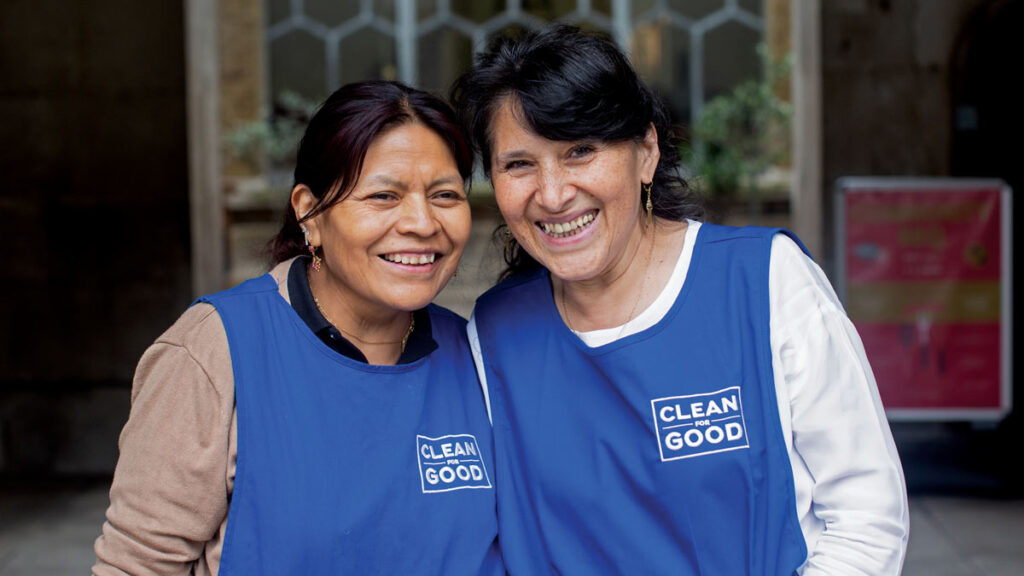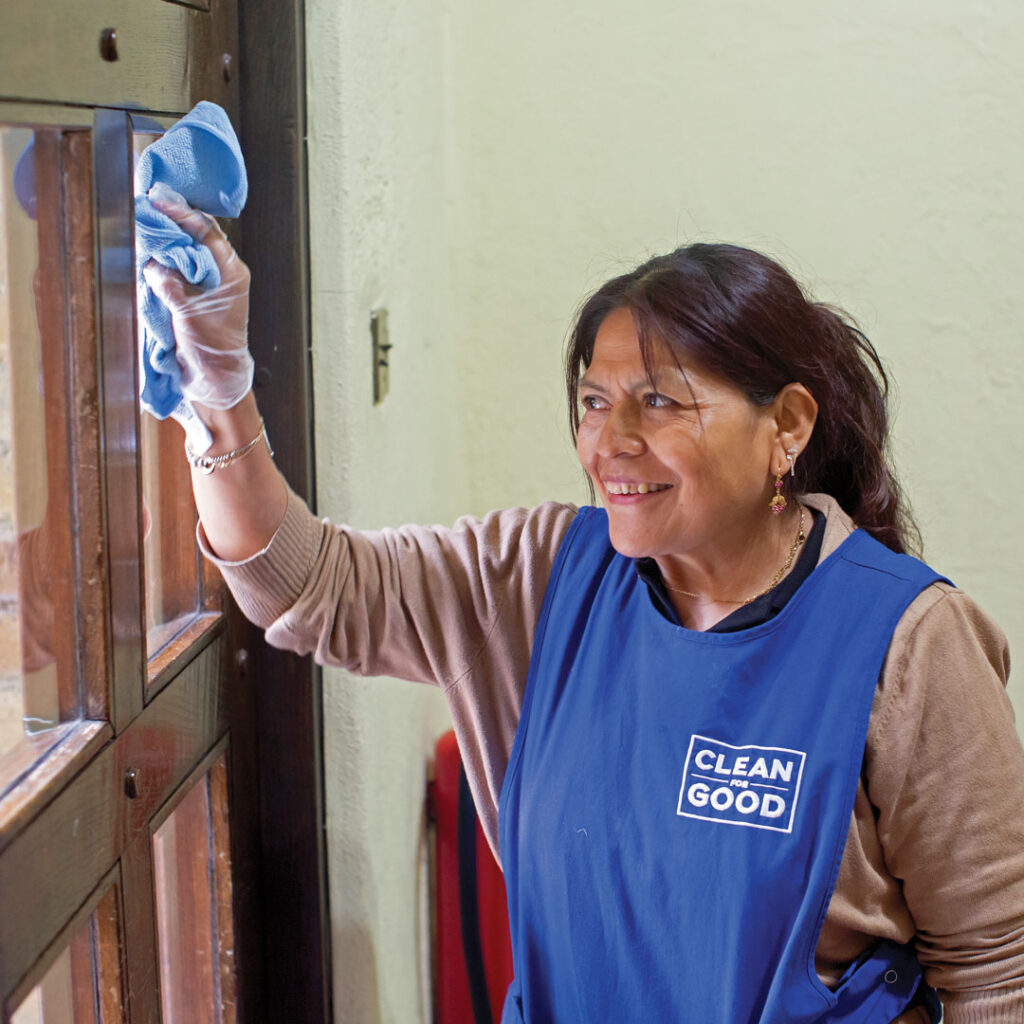Cleaning up the cleaning sector
Maritza has gone from being treated like a machine to being seen for her worth as a person.
#JesusNeverGivesUp
Photo: Maritza is now a manager at Clean for Good, supporting other cleaners and helping to clean up the cleaning sector
We all see their work but not many of us see them. What they do is essential, but not considered valuable. This is the reality for many cleaners in the UK. Clean for Good wants to change that. Maritza’s story shows this is possible.
“Without a doubt, cleaning is one of the lowest valued kinds of work in the UK,” says Charlie Walker, managing director at Clean for Good in London.
Every day an invisible legion of women and men set off to make Britain’s office spaces usable. Yet, many cleaners are not given time off or sick days. Some suffer verbal and sexual abuse from their employers and almost none are paid a living wage.
The dirty reality
Maritza was one of these unseen people. Growing up in Colombia and Ecuador, her family was close-knit, but her father struggled with alcoholism, which took a toll on them all. Maritza got married at 16, thinking life would be better with her husband. But he became abusive towards her, just like her father had been towards her mother.
Her father-in-law told her if she went to church, she would find God and he would help her. She went, but nothing changed at home. She was lonely and unhappy.
Maritza, her husband and their three children landed in the UK in 1995, planning to get some documents in order and emigrate to the US. But it wasn’t long before Maritza’s husband abandoned them. She was stuck, alone with three children in a country where she didn’t speak the language. She eventually met someone who spoke Spanish, who helped her find a place to rent, and she got some cleaning work.

Working Monday to Sunday from seven in the morning to seven at night, she earned £90 a week, and £80 of that went on rent. “I had £10 left to buy food and pay for gas and electricity,” she remembers. Life was miserable. She couldn’t see a way forward, and considered doing something drastic.
But one day, as she was preparing lunch, somebody knocked on her door. Maritza tried to ignore them but they wouldn’t give up. On the other side of the door was a local pastor who invited the family to church.
Realising he’d interrupted their lunch, the pastor offered to take the family out to a restaurant. Later that day, he brought the family to his house to meet his wife.
“She just cuddled me. And that’s when I found Jesus,” Maritza says. The pastor’s wife cried with her. “In that cuddle… it was like I was telling her everything. She knew everything. After that, I felt peace and joy again. And I went back home and things were different.”
Maritza and her family got involved with this pastor’s church and accepted Jesus into their lives. But her job situation grew more untenable. Maritza was now working for a cleaning company who wanted her to work relentlessly and always be available.

Not surprisingly, her health suffered and she ended up in hospital, completely worn out. The doctor said she couldn’t go back to that job. But how would she provide for her family?
When she came home from hospital, she received a phone call from Clean for Good. She had never heard of them, but they had read her CV (which her daughter had sent out to help find an alternative role) and wanted to offer her a job under very different conditions.
A different cleaning company
Clean for Good, officially launched in 2017, is a commercial cleaning company that chooses to value people and aims to provide a higher standard of service than their competitors, while still turning a profit.
The Christian company was started in response to the problem of low pay, exploitation and oppression in the cleaning sector. A small church in the City of London, St Andrew’s by the Wardrobe (coincidentally where CMS was born), did a listening exercise with their parishioners in 2014 and discovered that many of those who worked as security guards or cleaners were exhausted and underpaid. They longed for respect, dignity and a fair wage.
Church member Miriam Goodacre took the idea for an ethical cleaning company to a Dragons’ Den-style competition at Greenbelt festival and won a grant and a place on CMS’s mission entrepreneurship course Make Good, where she developed the idea further. CMS became a founder-investor of Clean for Good alongside two other groups.
Clean for Good employs each of its cleaners with a fixed number of hours from day one (no zero-hour contracts) and pays the London living wage for every hour worked. Clean for Good also gives their cleaners 25 days of annual leave and bank holidays off and runs an occupational sick pay scheme.
Calling working at Clean for Good a “miracle”, Maritza says she’s gone from being treated like a machine to being seen for her worth as a person. She is now a manager at the company.
Clean for Good is not just paying a fair wage, but is also fighting for everyone who is trapped in a system dominated by low pay and oppression. The company’s vision is to set an example of providing an excellent service to its clients while valuing its cleaners as people made in the image of God.
“Jesus… wasn’t scared to confront injustices. And in a sense, that’s what Clean for Good is doing,” said Charlie Walker, managing director.
“One single mother who works for us had been doing 70 hours a week. Now she works 35 hours, and gets to see her children. In coming to work with us, another woman got a 350 per cent pay rise from where she’d been. Being part of this and being able to tell our clients and investors about this difference makes me really happy.”
Six years in, the way Clean for Good treats its employees is starting to influence other companies for good.